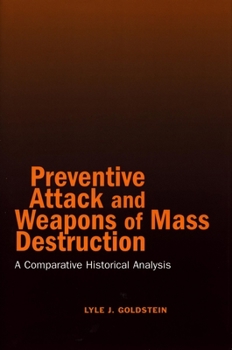Preventive Attack and Weapons of Mass Destruction: A Comparative Historical Analysis
The controversial Bush doctrine of preemptive war is often described as revolutionary. In fact, as this comparative study of rivalries involving weapons of mass destruction (WMD) shows, notions of preventive and preemptive war have long been closely tied to such weapons. In this study, a wealth of historical data is analyzed to address the fundamental question that WMD proliferation raises for U.S. defense policy: will the projection of U.S. power be deterred by nascent WMD arsenals in the hands of rogue states?
This wide-ranging comparison yields the conclusion that small WMD arsenals do not have the deterrent effects often attributed to them by scholars and analysts. These theorists ignore history's close calls, an oversight we share at our peril.





